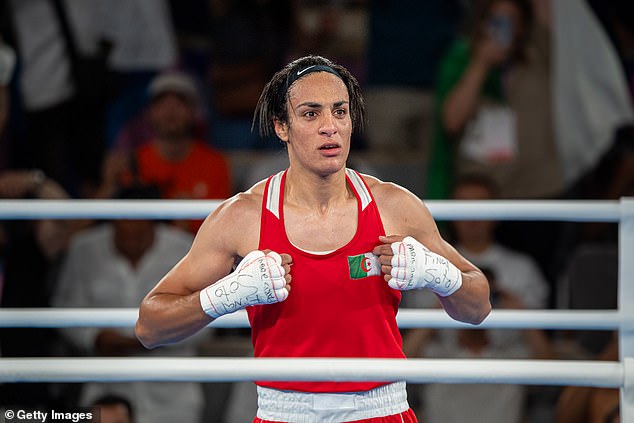The International Olympic Committee (IOC) has addressed growing controversy surrounding Algerian boxer Imane Khelif, after a leaked 2023 medical report claimed she is “biologically male”.
The report, which surfaced last week via 3 Wire Sports, allegedly states that chromosome analysis revealed a male karyotype (XY).
Khelif has consistently maintained that she is female and was cleared to compete in France based on the gender on her passport, in accordance with IOC policy at the time.

“The IOC has always made it clear that eligibility criteria are the responsibility of the respective International Federation,” a spokesperson told Mail Sport, declining to comment directly on the leaked report.
Despite her participation in Paris and a celebrated Olympic victory, Khelif’s eligibility has come under renewed scrutiny, with World Boxing — now the sport’s recognized international federation — introducing mandatory sex testing ahead of future events.
New Testing Rules & Khelif’s Ban
In a letter sent to the Algerian Boxing Federation, World Boxing declared Khelif ineligible to compete in female competitions, including the Eindhoven Box Cup (June 5–10, 2025), unless she undergoes genetic sex screening.
The new policy, effective July 1, 2025, requires all boxers over 18 to take a PCR-based genetic test, which detects Y chromosome material (notably the SRY gene) — a marker of male biological sex.
“Athletes found to have been male at birth — based on chromosomal sex or evidence of male androgenization — will only be eligible for the male category,” said World Boxing.

For athletes with Differences of Sexual Development (DSDs), the policy states that further hormonal and anatomical assessments may follow if male traits are present.
While World Boxing insists the move is meant to safeguard fairness and safety, it sparked backlash after naming Khelif directly in the policy rollout. Federation president Boris van der Vorst later apologized, admitting that her privacy had been compromised.
“I offer a formal and sincere apology for this and acknowledge that her privacy should have been protected,” he wrote to the Algerian Boxing Federation.
Critics argue the move may set a dangerous precedent, particularly since the IOC had previously rejected sex testing as discriminatory when not based on concrete, sport-specific advantages.
The issue comes amid rising calls for standardized sex-verification policies in contact sports where physical safety and performance disparities are argued to be more impactful.
President Thomas Bach clarified in 2024 that the Khelif case was not about transgender identity, but rather about biological eligibility. Still, the leaked medical report, Khelif’s public denial, and the IOC’s hands-off stance have only intensified scrutiny.



















